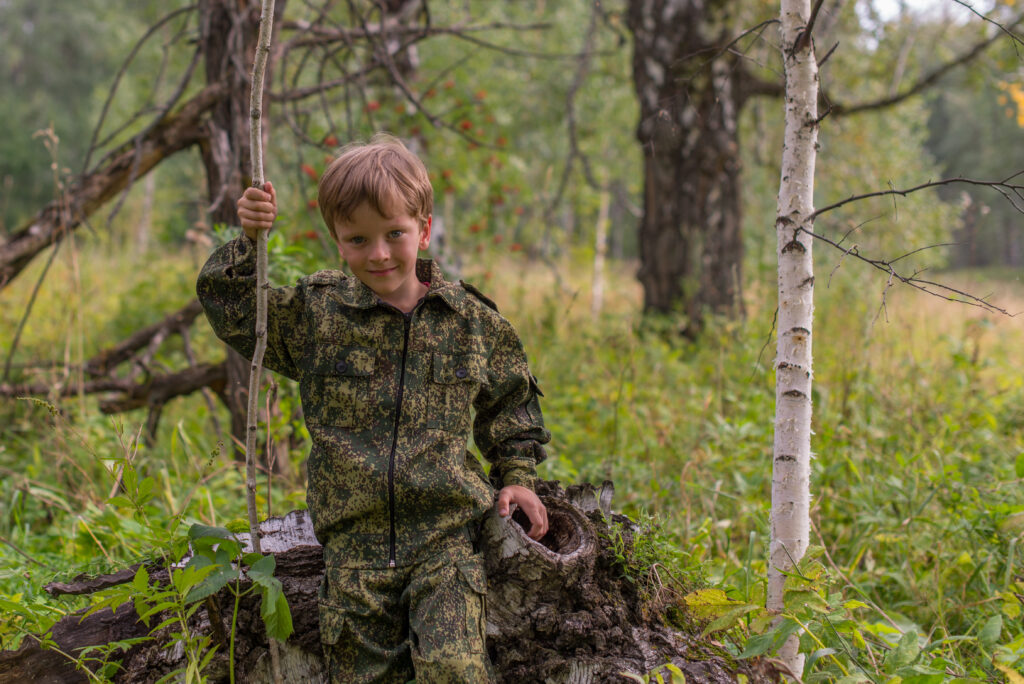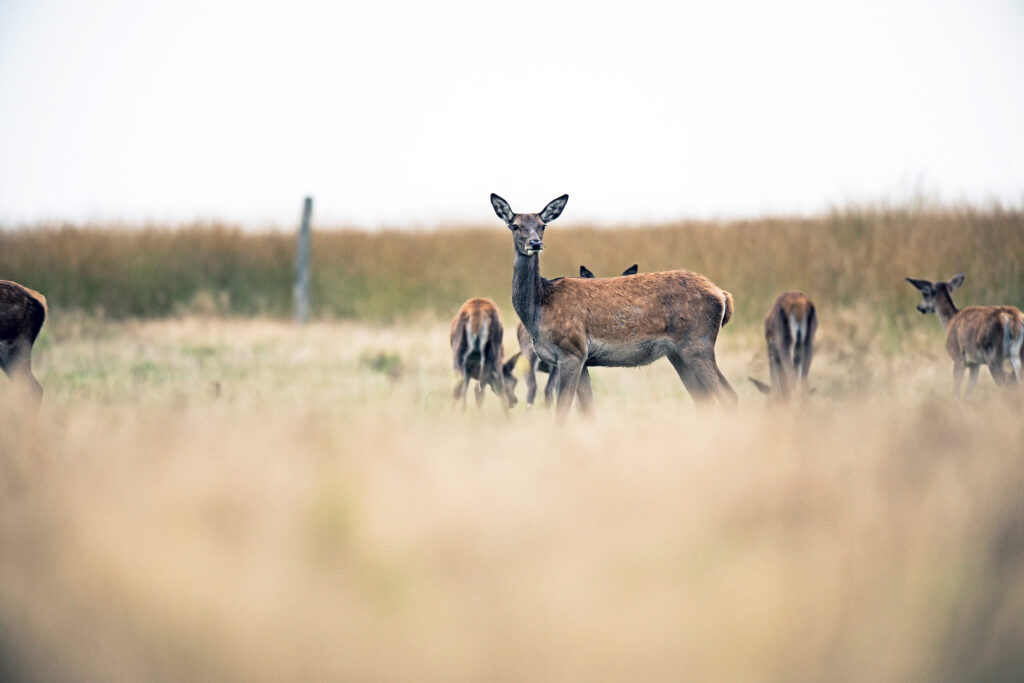Hunting is more than a sport or recreational activity—it’s a tradition deeply embedded in many cultures and passed down through generations.
At its core, hunting represents a relationship between humans, wildlife, and the land.
As the practice evolves, so do the ethical standards that guide responsible hunters.
Hunting ethics may seem simple in principle, but their effects are far-reaching, influencing wildlife conservation, safety, community relations, and the future of hunting itself.
But why are hunting ethics so crucial, and how do they consistently work to benefit everyone involved?
In this blog, we explore seven compelling reasons why hunting ethics always produce positive results, shaping not only the hunting community but also wildlife and ecosystems.
1. Protecting Wildlife Populations
The first and perhaps most important reason hunting ethics always work is their role in protecting wildlife populations.
Ethical hunters understand that maintaining balanced and healthy populations of game species like deer, elk, and waterfowl is essential for the ecosystem’s overall health.
Seasonal Regulations and Bag Limits
Ethical hunters adhere to seasonal hunting regulations and bag limits set by wildlife agencies.
These guidelines ensure that overhunting doesn’t occur, preventing population decline and promoting biodiversity.
For example, deer hunting seasons are established based on scientific studies, which consider population dynamics, food availability, and environmental conditions.
Ethical hunters respect these rules, understanding that taking more than necessary can upset the delicate balance of the ecosystem.
The Role of Game Wardens
Game wardens are critical in enforcing hunting laws, but ethical hunters also play a significant role in protecting wildlife.
Hunters who prioritize ethics do not need external enforcement; they follow the guidelines voluntarily because they understand the long-term impact on wildlife populations.
Unethical practices such as poaching or overhunting can decimate species, but ethical hunters ensure wildlife is preserved for future generations.
2. Promoting Fair Chase and Responsible Harvesting
At the heart of ethical hunting is the fair chase principle, which means giving the game a reasonable chance to escape.
This principle aligns with the respect hunters must show for wildlife, ensuring that the hunt is about skill and tradition rather than exploiting unfair advantages.
Fair Chase: Honoring Wildlife
Fair chase is deeply ingrained in ethical hunting. It prohibits hunters from using practices that would give them an unfair advantage, such as using artificial light to attract animals during nighttime coyote hunting or hunting from vehicles.
This ethical guideline ensures that hunters rely on their skills and knowledge rather than technology or deceit, which enhances the respect for the animals being hunted.
Ethical Trophy Hunting
Trophy hunting can often be controversial, but when practiced ethically, it means pursuing a mature animal under fair conditions and ensuring that the entire animal is used.
Ethical hunters respect the game, avoiding waste and honoring the animal by utilizing its meat, hide, and other parts.
3. Enhancing Conservation Efforts
Hunting ethics are closely tied to wildlife conservation.
Ethical hunters play a crucial role in supporting conservation efforts that ensure the long-term survival of game species and habitats.
Financial Contributions to Conservation
Hunters contribute millions of dollars annually to wildlife management programs through the purchase of licenses, tags, and stamps.
These funds directly support conservation initiatives like habitat restoration, species monitoring, and research projects. By following ethical practices, hunters help maintain the balance between human activity and wildlife preservation.
North American Model of Wildlife Conservation
One of the most successful models worldwide, the North American Model of Wildlife Conservation is based on ethical hunting.
This model emphasizes that wildlife is a public resource, and its use should be managed scientifically. Ethical hunters uphold this principle by respecting regulations that ensure wildlife populations are sustained for future generations.
4. Encouraging Safety and Education
Another key reason hunting ethics always work is their emphasis on safety and education.
Ethical hunters prioritize safety in the field, understanding that responsible behavior not only protects them but also others who enjoy the outdoors.
Safety Measures in Ethical Hunting
Ethical hunters always follow safety protocols, such as wearing hunter orange during hunting seasons to remain visible to other hunters, practicing firearm safety, and ensuring they have a clear target before shooting.
These measures are not just suggestions—they are essential to preventing accidents.
Education and Mentorship
Ethical hunting fosters a culture of education and mentorship. Experienced hunters often pass down knowledge about ethical practices, safety, and conservation to new hunters, creating a well-informed and responsible community.
Hunting education programs emphasize the importance of ethics, ensuring that future generations of hunters are stewards of the environment.
5. Fostering Community Respect
Hunting ethics also play a vital role in fostering respect within the community.
Ethical hunters act as ambassadors for the sport, demonstrating that hunting is not about recklessness or cruelty but about respect for nature, wildlife, and sustainable practices.
Respect for Non-Hunters and Landowners
One of the pillars of ethical hunting is respect for other outdoor enthusiasts, whether they are hikers, campers, or landowners.
Ethical hunters ensure that they follow property rights, obtain permission before hunting on private land, and avoid areas where non-hunters might be present.
This fosters goodwill within the broader community and helps to maintain public support for hunting as a responsible activity.
Preserving the Image of Hunting
Unethical practices, such as poaching or disrespecting wildlife, give the hunting community a bad reputation.
Ethical hunters help combat negative stereotypes by engaging in responsible behavior, which improves the overall perception of the sport.
This is crucial for ensuring the future of hunting, as public perception influences wildlife policies and hunting regulations.
6. Ensuring Sustainability of Hunting Practices
Sustainability is a cornerstone of ethical hunting practices.
Ethical hunters understand that they are stewards of the land and must take only what is needed to ensure that wildlife populations remain robust for future generations.
Ethical Methods of Hunting
Different types of hunting—whether it be bow hunting, rifle hunting, or trapping—can all be ethical if they follow the principles of fair chase and sustainable wildlife management.
Ethical hunters choose methods that align with their skills and local regulations, ensuring they hunt in a way that is both effective and respectful of the animal and the environment.
Impact on Ecosystems
By following ethical guidelines, hunters ensure that their impact on the ecosystem is minimal.
Ethical hunting helps control overabundant species like deer, which can cause ecological damage if left unchecked.
This balance supports the health of habitats, ensuring they remain vibrant and capable of supporting diverse wildlife species.
7. Building a Legacy of Responsibility
Finally, hunting ethics help build a legacy of responsibility that extends beyond individual hunters.
Ethical hunters pass down their knowledge, traditions, and values to younger generations, creating a culture of respect, conservation, and responsibility.
Teaching Future Generations

Hunting is often a family tradition, and ethical hunters play a critical role in shaping the values of future hunters.
By teaching their children and peers the importance of ethical hunting, they contribute to a culture that respects wildlife, follows regulations, and prioritizes safety.
This legacy ensures that hunting remains a sustainable and respected activity.
Leaving a Positive Environmental Impact
Ethical hunters leave a positive environmental impact by contributing to conservation, respecting wildlife, and ensuring that their actions do not harm the ecosystem.
This long-lasting impact benefits not only hunters but also wildlife, landowners, and outdoor enthusiasts.
Our Insights on Hunting Ethics
“Hunting ethics are essential for preserving wildlife populations and ensuring that future generations of hunters can continue to enjoy the outdoors.
Without ethical practices, the balance between human activity and wildlife would be disrupted, leading to negative consequences for both.”
“Ethics are what keep hunting a respected tradition. When we follow ethical guidelines, we’re not just protecting wildlife—we’re ensuring that the sport we love continues for future generations.”
Future Trends in Ethical Hunting
As technology and conservation efforts evolve, ethical hunting practices will also change.
In the future, hunters can expect stricter regulations around technology use, such as drones or thermal imaging, to ensure the principles of fair chase are maintained.
Impact of Technology on Ethical Hunting
While technology can enhance hunting safety and efficiency, it also presents challenges.
The future of ethical hunting will likely include debates on how much technology should be allowed in the field.
Ethical hunters will need to navigate these changes carefully, ensuring that the principles of fair chase and respect for wildlife remain intact.
The Role of Hunting Ethics in Future Environmental Policies
As conservation efforts become more global, hunting ethics will play a crucial role in shaping international wildlife policies.
Ethical hunters will continue to be key players in conservation efforts, influencing policies that protect endangered species, manage wildlife populations, and preserve habitats.
Frequently Asked Questions (FAQs)
What is ethical hunting?
Ethical hunting refers to practices that respect wildlife, promote safety, and comply with laws and regulations. Ethical hunters follow principles like fair chase, which ensure that animals have a fair chance to escape.
How does ethical hunting contribute to conservation?
Ethical hunting helps control wildlife populations, preventing overpopulation and habitat destruction. It also funds conservation efforts through the purchase of licenses and permits.
Why is safety an important part of hunting ethics?
Safety is a critical component of ethical hunting because it protects both hunters and non-hunters. Ethical hunters always follow safety protocols, such as wearing visible clothing and handling firearms responsibly.
How can I practice ethical hunting?
To practice ethical hunting, follow local regulations, respect wildlife and their habitats, prioritize safety, and educate yourself continuously about conservation and ethical practices.
What are the consequences of unethical hunting?
Unethical hunting can lead to overhunting, the destruction of habitats, negative public perception of the hunting community, and even legal consequences such as fines or revocation of hunting licenses.
Conclusion
Hunting ethics are not just guidelines—they are essential for the preservation of wildlife, safety, and the future of hunting.
By embracing ethical practices, hunters contribute to conservation efforts, build stronger community relations, and ensure that the sport continues to thrive for generations to come.
Whether you’re an experienced hunter or new to the field, always remember: hunting ethics always work—not just for you but for wildlife and the environment.


1 thought on “7 Reasons Why Hunting Ethics Always Work”